The chaotic drag-punk show celebrating poppers, porn karaoke and queer counterculture
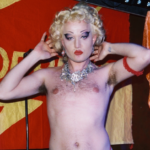
Iconoclastic performer Bleach invites GAY TIMES to take a sniff at legendary Berlin karaoke club Monster Ronson’s for amyl nitrate-themed extravaganza POPPERS.
WORDS BY SAMUEL BENKE
PHOTOGRAPHY BY LEE THIELER
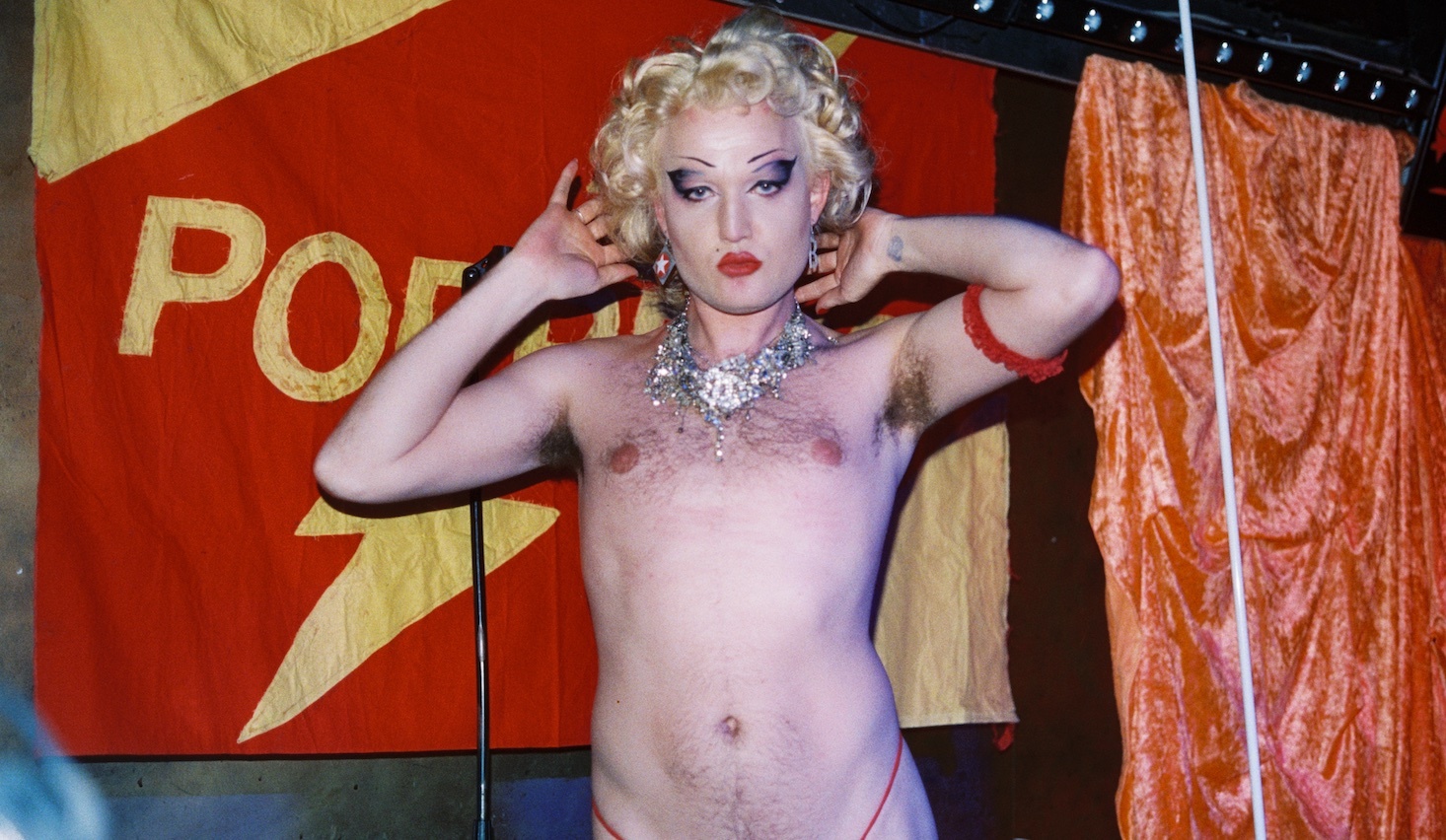
Sex, drag, punk and poppers. That’s what Bleach’s shows are all about.
The Essex-raised, Berlin-based drag performer is a central figure in the German capital’s queer underground, organising monthly shows, concerts and karaoke nights. Key among her priorities? Fighting for a Berlin beyond commercialisation and gentrification, and for a nightlife that remains vibrant, queer and accessible to all.
For her show POPPERS, we visited Berlin’s legendary karaoke club Monster Ronson’s – and the spectacle was every bit as daring and subversive as we’ve come to expect from the firmly NSFW drag queen.
On stage, dildos were lubricated and inserted into every orifice. In the background, porn karaoke was played, and a large tray of poppers passed around again and again, which the crowd cheerily sniffed from. This is the spirit of a Berlin that people like Bleach want to protect at all costs.
To mark the occasion, we spoke with the punk queen about her art, the commercialisation of the underground scene, her struggle with social media and the future of a nightlife scene that’s ever-changing.
What does drag mean to you?
To me, a drag queen is an entertainer, a performer and a person who crosses gender. It’s the girl standing on top of the table having the most fun in the world for herself and everyone around her. I believe that drag starts from the moment you’re in that character until the very end of the night. My drag character Bleach is a full-blown revolutionary, sexiness-obsessed, homoerotic punk rocker! I organise parties, shows, create music and make sure everyone has a fantastic night.
Punk plays a big role in your art and your life in Berlin in general. Where do punk and Berlin intersect for you?
Punk is everywhere. I mean, this city was built on squats. After the Berlin Wall came down, people occupied houses, built clubs and created housing for each other. And this environment of punk and squatting has truly given me the opportunity to do what I do. When I started drag, I did a few drag shows here and there at gay bars, but I loved doing shows in squat bars where people just lived alternative lives. That was inspiring. When you combine that with genderfuckery, it’s even more empowering and magical. I love the punks.
Do you feel like a lot of it is disappearing right now?
100%. I always feel like I’m at the edge of stuff. When I came here, half of the squats had already been closed down. Now I only know the people at “Wagenplatz”. I recently recorded my new single there, in the Fantasticore Studio with all this equipment and all these great people. If I was in London or Stockholm, I wouldn’t have access to that kind of space and experience.
What used to be the “city of squats” is slowly turning into luxury condos for some and a huge housing crisis for everyone else. Squats have been part of the Berlin cityscape since the early 1970s and are the subject of heated debates on the question of “who owns the city?”. In Kreuzberg, where the so-called “Häuserkampf” initially took place, vacant and decaying old buildings were saved from demolition by politically active squatters. It was about securing living space, but also about interfering with the plans of the Senate, which at the time wanted to wipe out entire blocks of flats. Now, most of these places have been violently shut down and all that remains is another building site for a new high-rise and the fading impression that anything was possible here once.
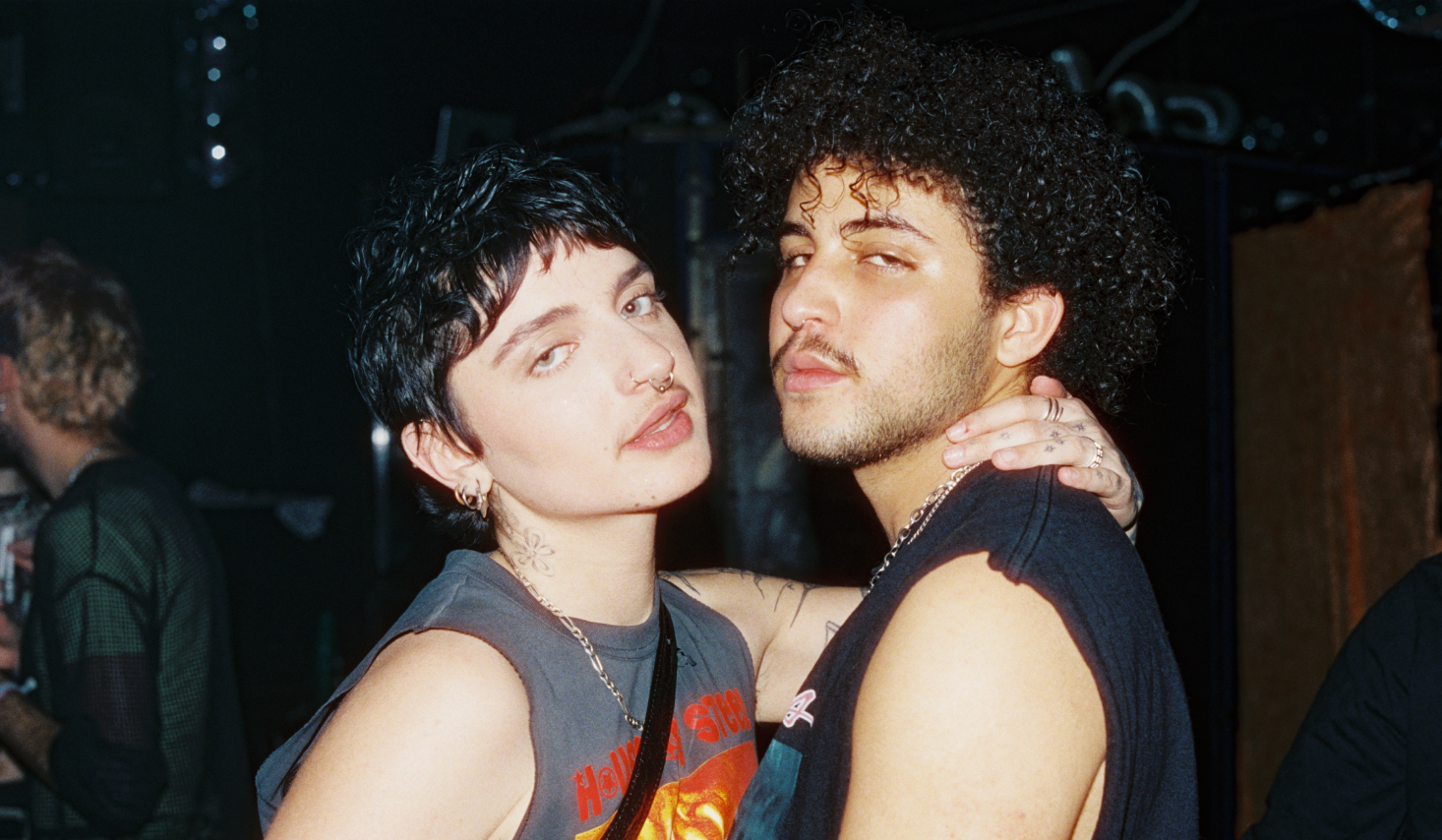
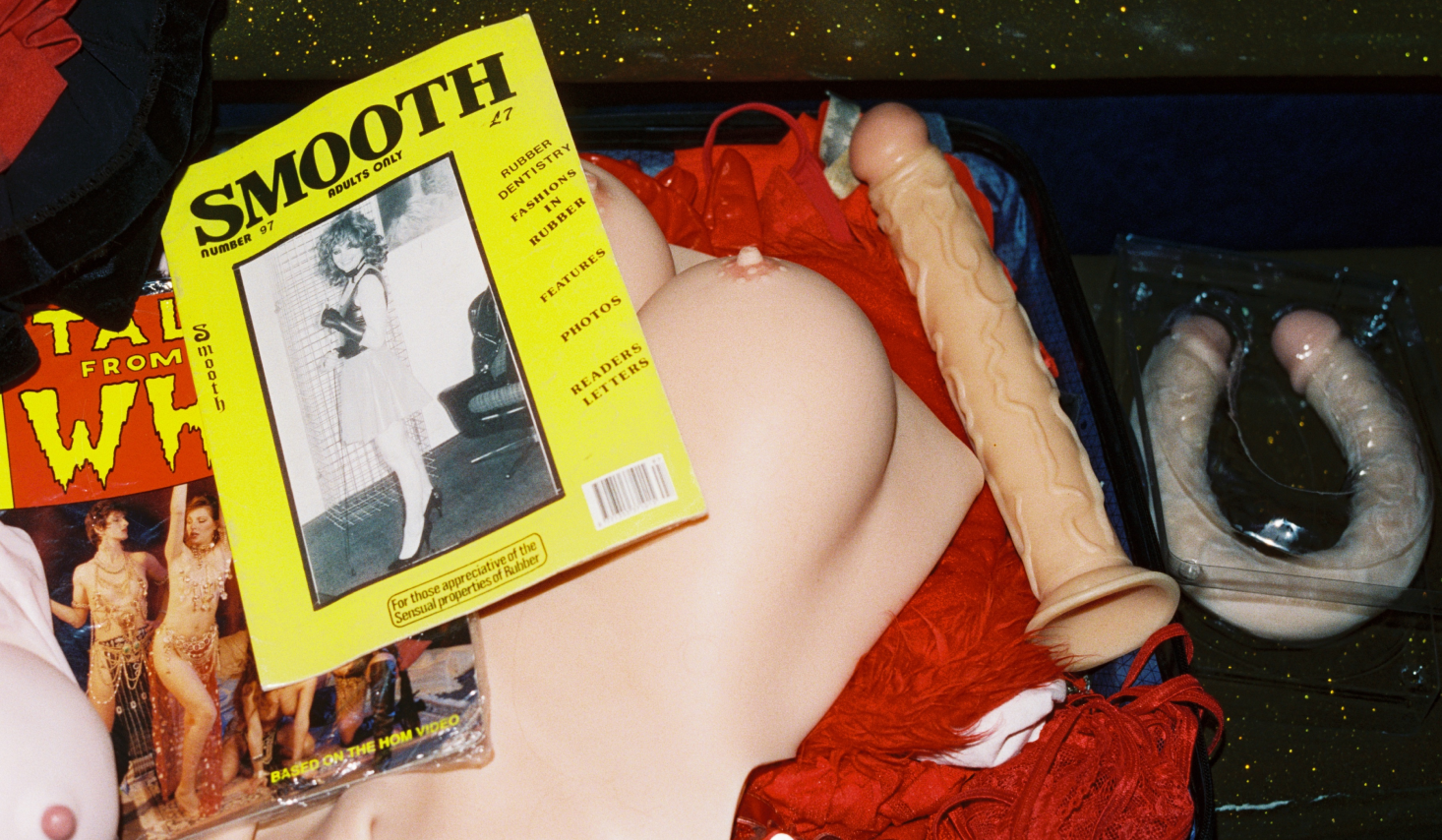
“My goal is to be someone completely wild and naked and screaming, running around the stage with make-up falling off, sweating”
Besides your drag, you make music and organise parties. Tell us about that.
I’m in a band called PUNX N KWEENS – of course, we make punk music. We’ve been around since 2019 and we are a drag show with punks and queens, it’s really in the description for you. We do cheesy covers, play music and organise shows with other punk bands like Eat Lipstick. The song, “I WANNA KISS A DRAG KWEEN,” for example, is about older queer people who inspire you when you’re young and think there’s something wrong with you As a kid, I read all the music magazines. I knew every fucking thing about the Rolling Stones, but it took me so long to discover the first trans rocker, Jayne County, who was working at the same time as Iggy Pop. It took me ten years, trudging through white guys with guitars to finally find these punks. As a band, we try to cover these people that are lost in the history of music.
Your shows are crazy and free. What’s important to you when you go up on that stage?
Rock ‘n’ roll. It may sound cheesy, but that’s how it is. People don’t access it anymore but it’s out there. I’ve had people at shows tell me to calm down. My answer is always: ‘Babe, that’s rock ‘n’ roll’. You’re supposed to be losing your shit. And if you don’t see that, you just have to do it yourself. My goal is to be someone completely wild and naked and screaming, running around the stage with make-up falling off, sweating; when I don’t see that anywhere, I have to be it. The most magical thing is, once you start being it, you realise that it is all around you. There are so many people doing amazing stuff and they’re right next to me.
You are part of the Berlin underground drag scene, which is becoming increasingly smaller. What is your perspective on what’s happening there?
When I came here, I used to go to drag shows and they had no adverts, nowhere, no logos on the bar, on the glasses. Now there are brands everywhere, you pay by card, you stand in a proper queue. I think this process is going on subliminally and unnoticed. Half of my friends are now performing for big brands because they have to pay their rent, of course. That’s the crazy thing. You didn’t have to work so hard before to be able to afford to live here. These big companies pay for logos, but they don’t understand what drag really stands for: the rejection of the status quo, the genderfuckery, the entertainment.
I’m not stupid. I know that I, too, benefit from RuPaul bringing drag to television. I know that drag queens used to be in the back corners of bars, they used to be hidden. But simultaneously, I know that those drag queens in the back of the bar are still doing the best drag out there. Like Juwelia or Anita Drink, who in my mind are my adopted drag moms. You enter their universe and think to yourself, ‘Who is this crazy bitch screaming into a microphone for four hours? She is out of this world. She doesn’t make any sense. I can’t comprehend her’. That’s perfect. That’s how it’s supposed to be.
“I remember the first time I went to Cocktail d’Amore and was overwhelmed by seeing so many gay people in one place. Now, unfortunately, everything looks and feels a bit like London.”
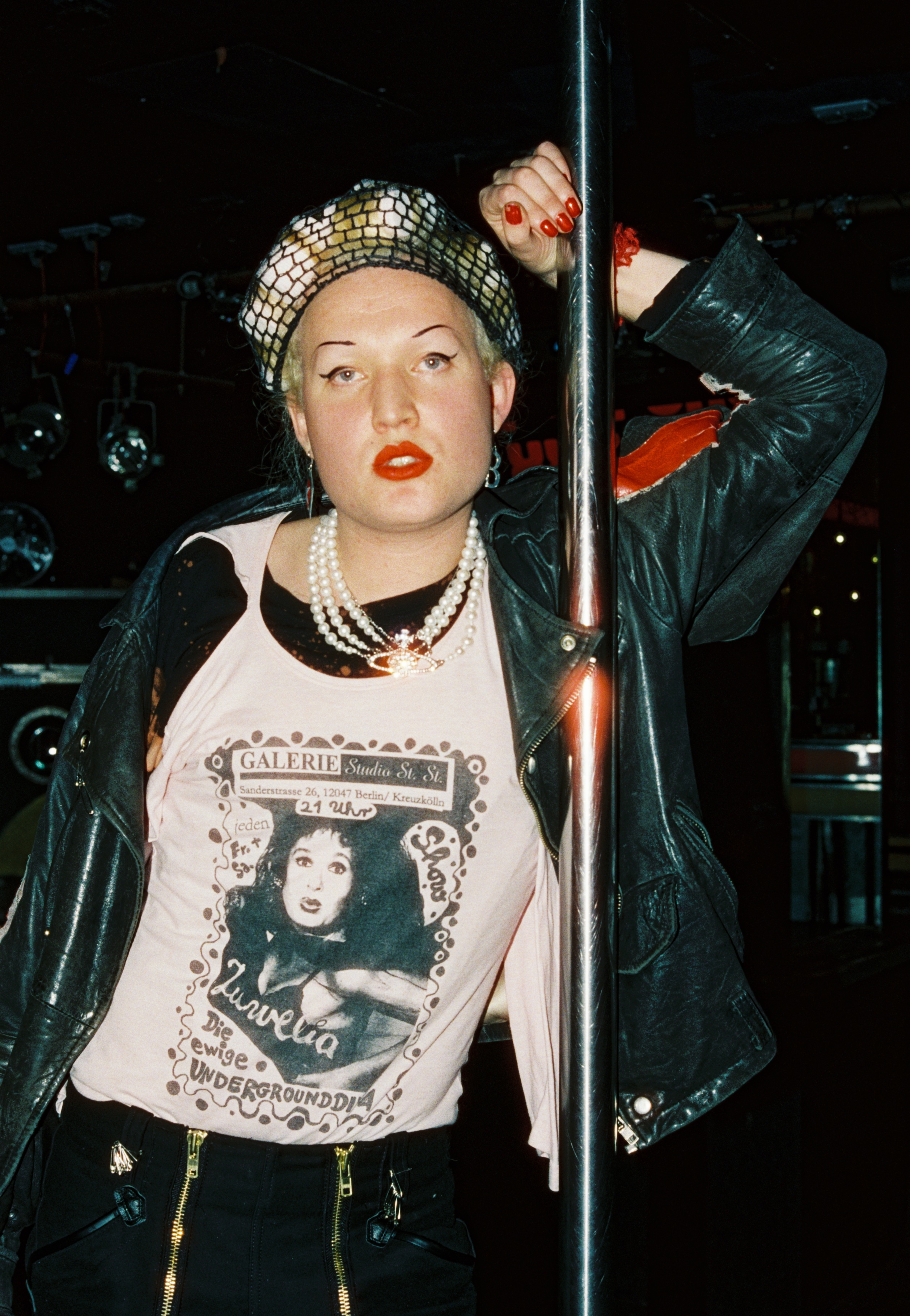
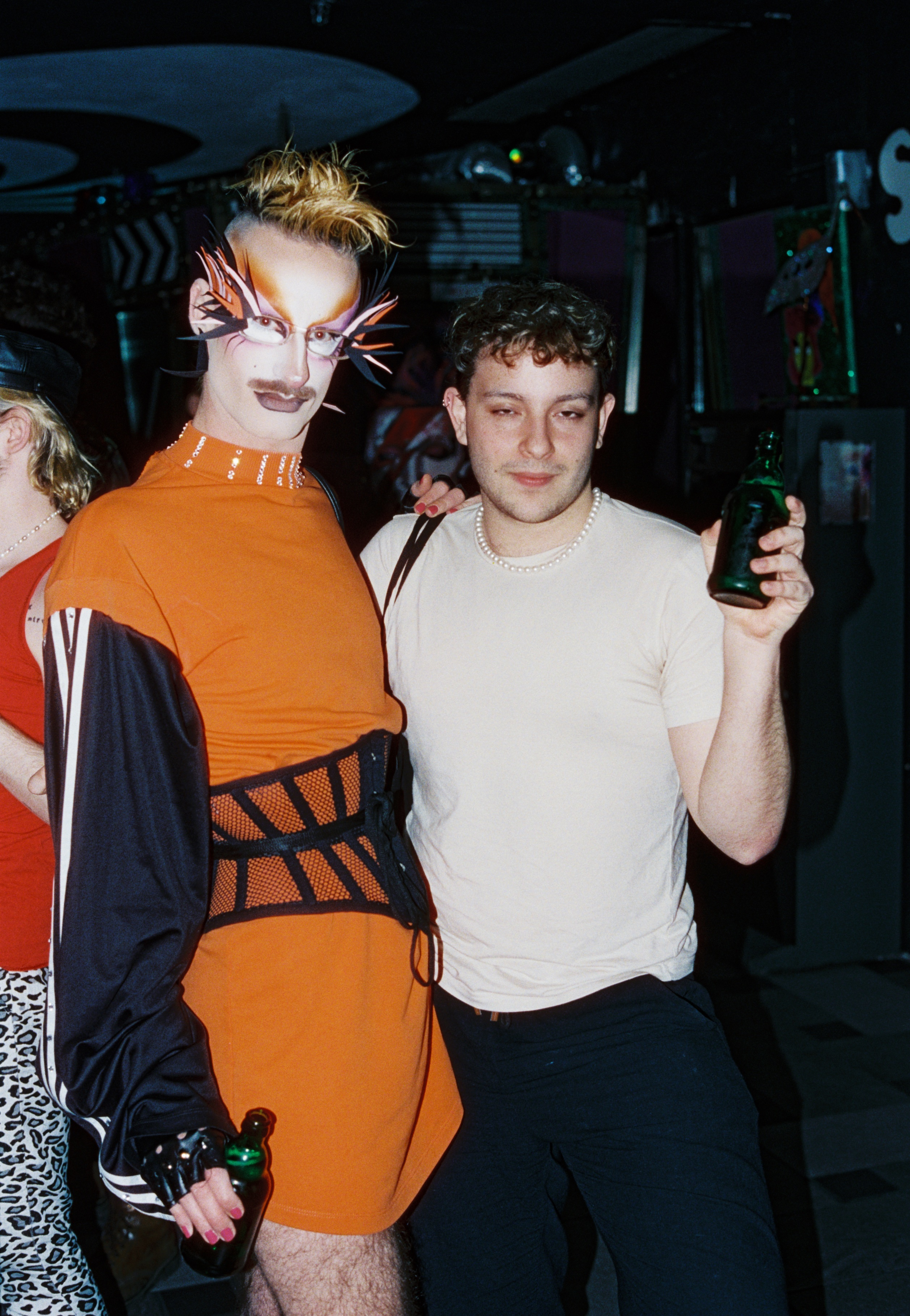
“These big companies pay for logos, but they don’t understand what drag really stands for: the rejection of the status quo, the genderfuckery, the entertainment.”
But then again you also use social media to make your work known. How does that fit together?
Instagram was the first place I showed my ass. I am a nudist. I use my persona online to inflate my ego. I created a character called Babychino, a naked nymphomaniac from heaven who gives me the courage to do anything in real life. So, I understand that showing yourself on the internet and getting validation through Likes is powerful. I portray myself as the rock star I want to be. It’s kind of an extended version of what everyone is doing, but it’s exaggerated through drag. At the same time, I hate it too. It’s a disgusting place. Advertising has taken over, everything political is censored, and you can’t share anything important anymore. So now I’m trying to make real contacts again through newsletters, merchandise and postcards. Those actual transactions of holding a T-shirt, getting a sticker, taking a picture and saving the flyer are what matters most.
Through the years, you have become a staple of Berlin nightlife. At the same time, independent raves are becoming less common and clubs are closing down. What’s your insider perspective on this?
I love nightlife. Clubs are empowering, special places. I remember the first time I went to Cocktail d’Amore and was overwhelmed by seeing so many gay people in one place. Now, unfortunately, everything looks and feels a bit like London. I understand that this can also be seen as a kind of progress, but you lose this completely liberated space of people taking ketamine in an old wheat silo, dancing freely, meeting people and creating something new. You lose the underground nature, this kind of shared spirit.
Now, it’s often just expensive, it’s commercialised, people are on their phones, they stand on the podium and don’t dance; they have no idea what’s so special about these places. Not far from here, the new Amazon tower rises up into the air, while people wash themselves in puddles next to it. I don’t know what’s next, but I’ll always complain about rich assholes funding wars. I’ll keep doing my shows. And if you want to see the real Berlin and keep the real Berlin, come to a fucking show, buy a shirt, get involved, or we’ll come and burn your tower down. It’s that simple.
Here she is talking about the Amazon Tower. The tallest building in Berlin stands at 140 meters high on the border between the districts of Kreuzberg and Friedrichshain. Its construction was accompanied by countless protests from people living in the adjoining districts, activist groups and even some city officials because the huge structure hardly has any space for public use – and because the tower’s tenant could accelerate displacement in the already gentrified neighbourhood.
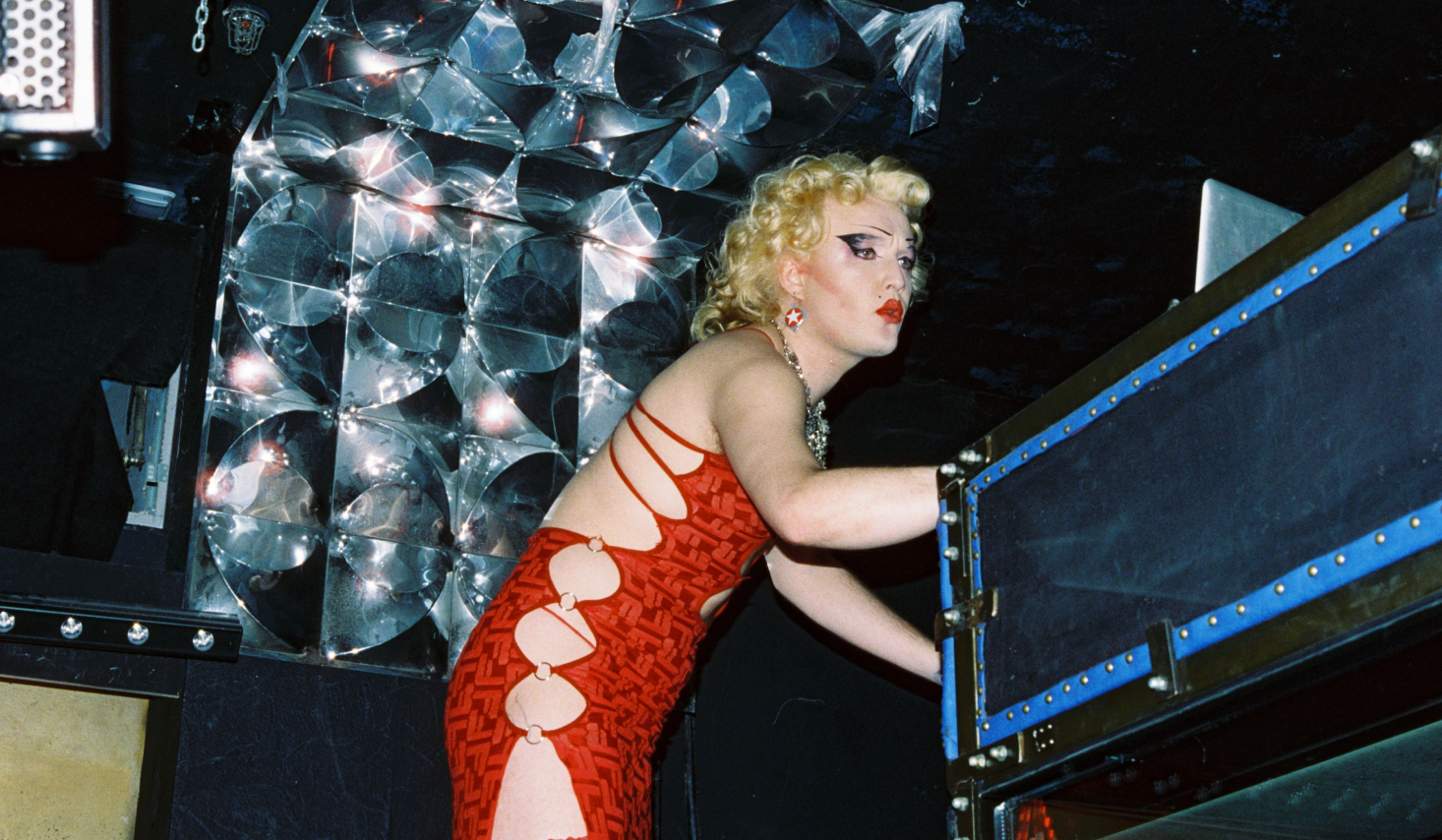
“Instagram was the first place I showed my ass. I am a nudist.”
So, what does the future look like for you?
We have to occupy everything. We’re on the brink of destroying this planet, we have to stop that somehow. I see a future that’s peaceful, that’s decentralised, that deals with the responsibility of what we’ve done and what we’re doing now, by selling guns and supporting violence all over this world. I believe that by dreaming big we can take back this city and the rest of the world. Back to a connected community of people learning how to farm, because damn, does anybody actually know how to grow food around here?
Sounds great, any last words for us?
I grew up in Essex, England. A place where people shouted abuse at me because I had yellow hair. Maybe I can put it like this: I used to have a very clear idea of what a vegetarian was like, what they looked like, what they felt like. And then one day I thought, “Oh, I’m going to be a vegetarian.” And I didn’t even feel or look any different. I was just myself, the same, just a vegetarian. Then at some point I thought, “What’s it like to put a lady’s thong on?” And then you do it and think to yourself, “I’m the same person.” If you interact with everything without this judgmental sense, you quickly realise how much freer you become. The kid who thought vegetarians were hippies back then is now a non-binary drag queen. It’s fun to try things out, everyone should. So just stick some lipstick on your face and go to the club.
The post The chaotic drag-punk show celebrating poppers, porn karaoke and queer counterculture appeared first on GAY TIMES.
Go to Source
Author: Samuel Benke
